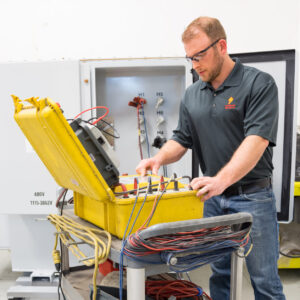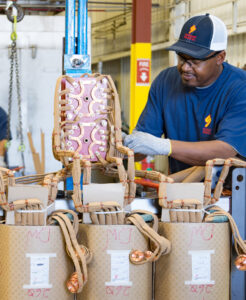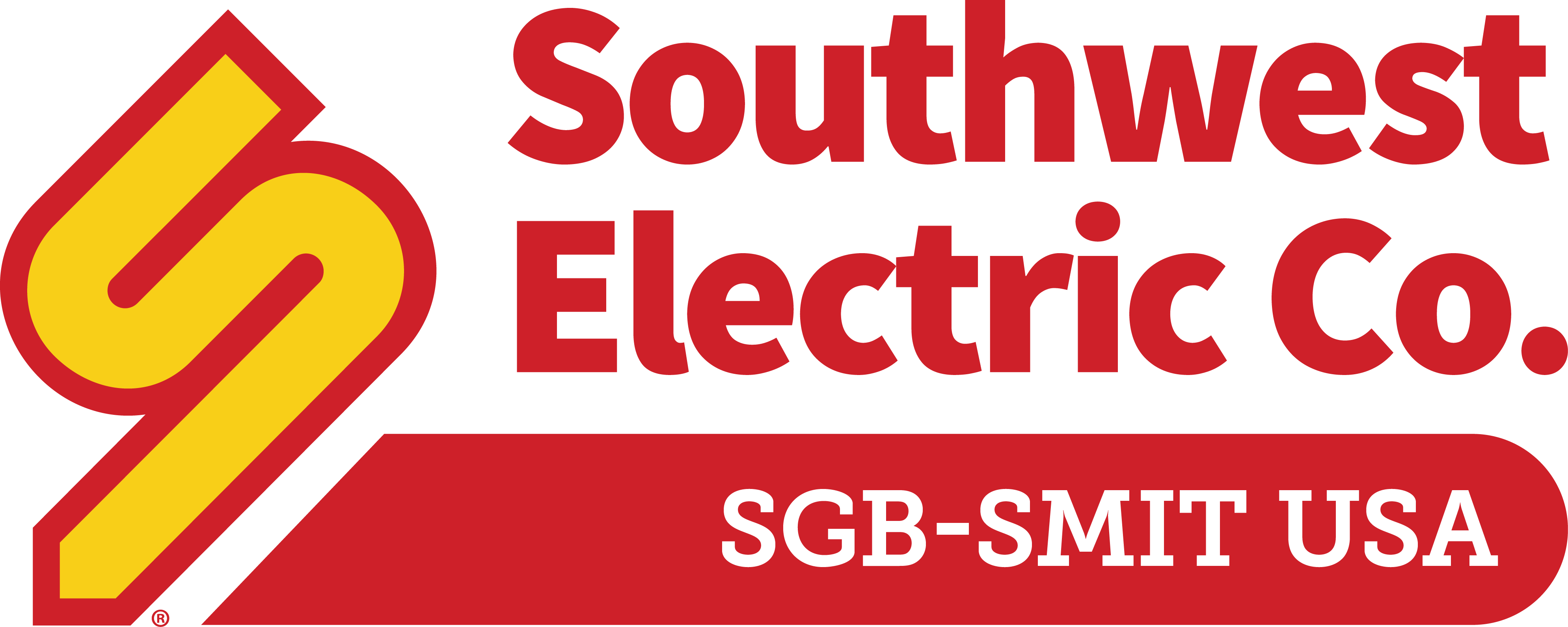By Leda E. Rice, Human Resources Business Partner
The power equipment and energy industry is at a critical point. Labor shortages are straining the ability to keep up with demand, especially in technical and skilled trade roles. While degrees and formal credentials remain valuable, relying on them alone doesn’t fully reflect today’s workforce reality. Many competent candidates gain expertise through on-the-job training, apprenticeships, military service, or nontraditional career paths. At Southwest Electric Co., we see skills-based hiring as more than just a strategy. It’s a proactive investment in building a strong, adaptable workforce prepared to power the future. In this article, I will explore what skills-based hiring is and explain why it has become such a powerful approach for recruiting—especially in industries where finding qualified talent can be challenging.
What Is Skills-Based Hiring?
 Skills-based hiring prioritizes what candidates can do, rather than the credentials they hold. This approach is especially valuable for technical roles such as transformer services, field maintenance, and manufacturing, where practical skills, problem-solving, and adaptability often outweigh classroom experience. Importantly, skills-based hiring doesn’t replace degrees or credentials — it complements them. A degree may demonstrate a strong foundation of knowledge, but practical skills and adaptability show how that knowledge translates on the job. So, how can a more skills-based hiring focus be achieved? Southwest Electric Co.’s HR team supports this approach in a couple of different ways:
Skills-based hiring prioritizes what candidates can do, rather than the credentials they hold. This approach is especially valuable for technical roles such as transformer services, field maintenance, and manufacturing, where practical skills, problem-solving, and adaptability often outweigh classroom experience. Importantly, skills-based hiring doesn’t replace degrees or credentials — it complements them. A degree may demonstrate a strong foundation of knowledge, but practical skills and adaptability show how that knowledge translates on the job. So, how can a more skills-based hiring focus be achieved? Southwest Electric Co.’s HR team supports this approach in a couple of different ways:
- Technical Reviews: Allows employers to evaluate a candidate’s capabilities directly. In addition, technical reviews create a standardization, reduce bias, and can help both predict on-the-job performance while expanding the job pool to include candidates who have the skills but may lack traditional credentials.
- Performance Assessments: Allow for evaluating competencies beyond technical skills. It allows the business to assess real-world application scenarios and validate job readiness in candidates.
- Apprenticeships: Allow for building a pipeline of talent by creating a future workforce. They allow for a learning context where individuals learn business processes and relevant skills. In addition to the trainees being able to establish that they learned the relevant skills, it also creates higher retention and loyalty.
These steps ensure we’re evaluating candidates on their ability to perform, troubleshoot, and grow on the job — not just on paper qualifications. By embracing skills-based hiring, Southwest Electric Co. opens doors for more candidates to demonstrate their true potential. This approach doesn’t just meet immediate staffing needs, it builds a stronger, more adaptable workforce that will power the company’s future.
Why Does Skills-Based Hiring Matter?
 The energy sector is facing a wave of retirements, leading to a significant loss of experience, while fewer younger workers are entering the trades. Demand for skilled talent has increased as companies expand into new technologies such as renewable energy, advanced substations, and data centers. Competing industries are drawing from the same pool of candidates, making it increasingly difficult to find and retain talent. Continuing to rely solely on a traditional hiring model could result in risks to the business, including longer project timelines, increased costs, and difficulty in maintaining the quality that customers trust. To meet this challenge, we need to broaden the way we evaluate and recruit candidates. Traditional credentials remain valuable, but relying on them alone can narrow our talent pool and contribute to project delays or missed growth opportunities. Skills-based hiring complements these credentials by focusing on proven abilities, helping ensure the right people are in the right roles at the right time. By approaching recruiting this way, we expand our pipeline while fostering a culture that values learning and adaptability. This positions Southwest Electric Co. to respond quickly to changes within the industry while strengthening long-term workforce resilience.
The energy sector is facing a wave of retirements, leading to a significant loss of experience, while fewer younger workers are entering the trades. Demand for skilled talent has increased as companies expand into new technologies such as renewable energy, advanced substations, and data centers. Competing industries are drawing from the same pool of candidates, making it increasingly difficult to find and retain talent. Continuing to rely solely on a traditional hiring model could result in risks to the business, including longer project timelines, increased costs, and difficulty in maintaining the quality that customers trust. To meet this challenge, we need to broaden the way we evaluate and recruit candidates. Traditional credentials remain valuable, but relying on them alone can narrow our talent pool and contribute to project delays or missed growth opportunities. Skills-based hiring complements these credentials by focusing on proven abilities, helping ensure the right people are in the right roles at the right time. By approaching recruiting this way, we expand our pipeline while fostering a culture that values learning and adaptability. This positions Southwest Electric Co. to respond quickly to changes within the industry while strengthening long-term workforce resilience.
Where Can We Find Skilled Labor?

As noted earlier, addressing this workforce challenge required expanding the way we recruit and develop talent. One important strategy is building strong partnerships with technical schools, trade programs, and apprenticeship initiatives which create direct entry points for the next generation of workers. At the same time, reskilling and upskilling programs help us attract talent from related industries such as construction, oil and gas, and automotive, where transferable skills bring immediate value. Apprenticeships and entry-level training programs also provide clear pathways for employees to grow into specialized roles, while military veterans contribute discipline, technical expertise, and proven leadership.
Naturally, some positions such as engineering design or regulatory compliance require formal education and licensing. Skills-based hiring ensures we strike the right balance: honoring the value of the credentials while also opening doors for skilled workers who may come through alternative pathways.
Equally important, we are committed to investing in our current workforce. By offering robust training, career development, and advancement opportunities, we not only strengthen our internal talent pipeline, but we also build loyalty and long-term success for both our employees and our company.
Final Thoughts
At Southwest Electric Co., we believe that powering the future means redefining talent today. Skills-based hiring is not just about filling open positions, it’s about broadening the way we evaluate talent, ensuring that degrees, credentials, and demonstrated skills all have their place in building the strongest possible workforce. For candidates, this means greater opportunity and a clear pathway to rewarding careers. For industry partners, it signals collaboration and forward-thinking. For our communities, it ensures that we remain a trusted leader delivering reliable energy solutions.
By focusing on skills — alongside formal education — we build a workforce that is resilient, diverse, and ready to meet the challenges of tomorrow.
Think you have the skills to join the team? Check out our careers page!

